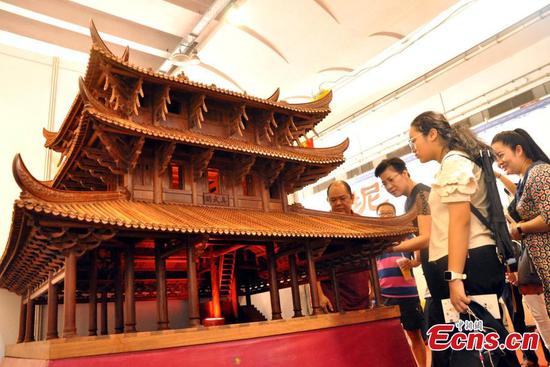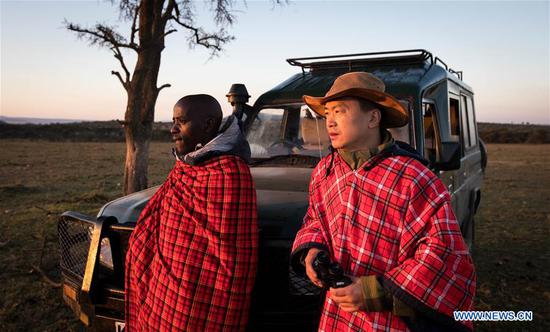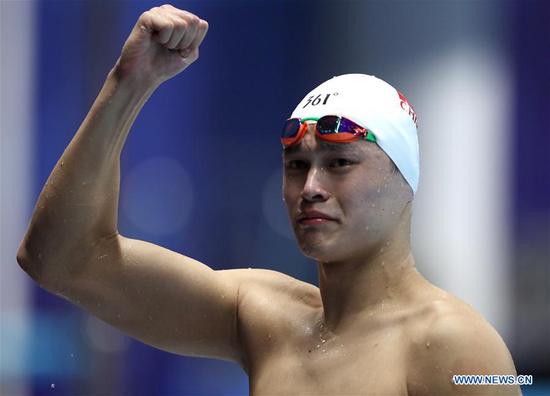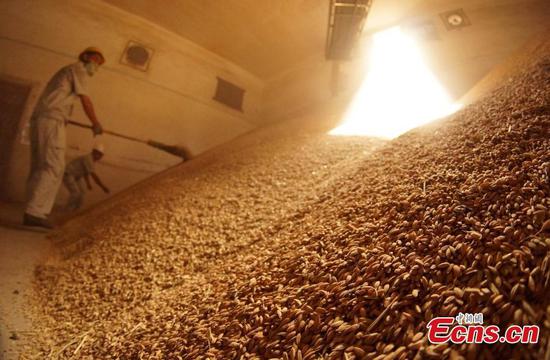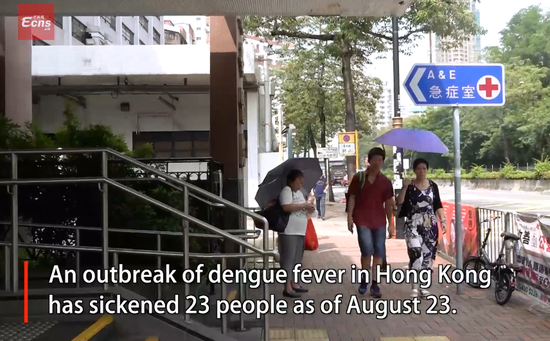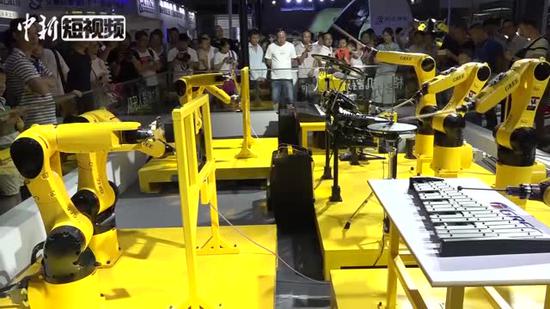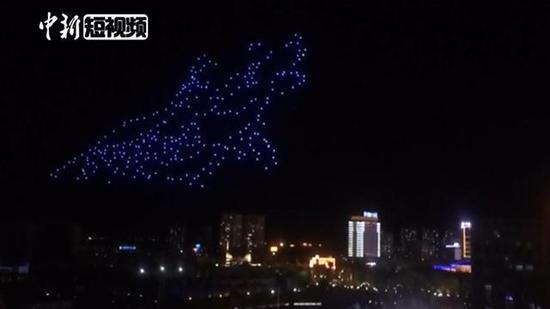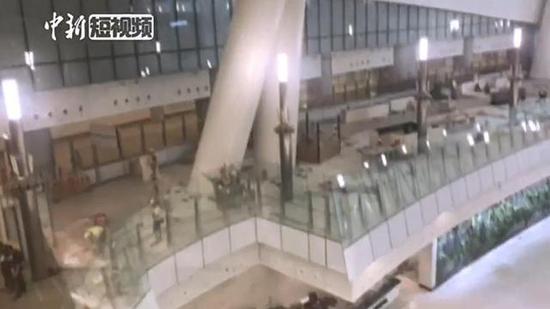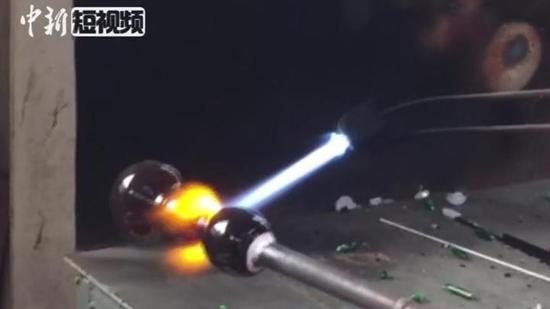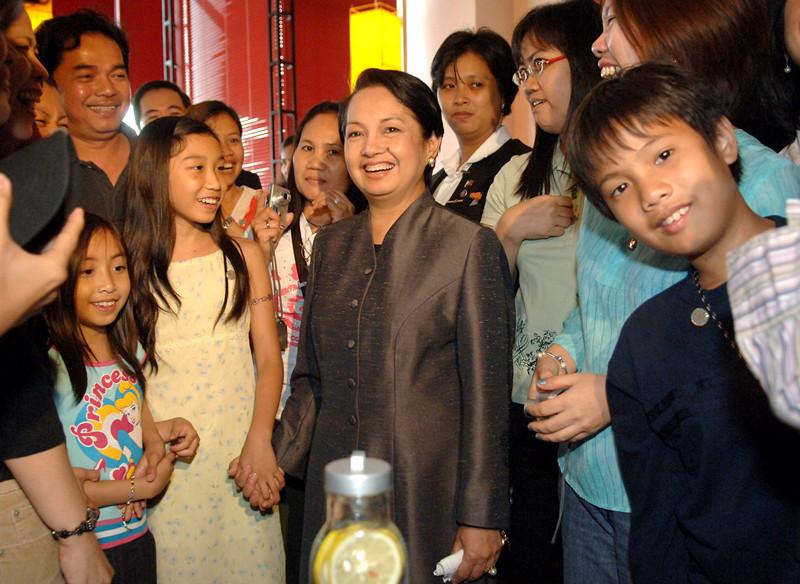
Philippine president Gloria Macapagal Arroyo meets Filipinos living in Chengdu, Sichuan Province at a Philippine-invested shopping center in Chengdu on June 6, 2007. (SHAO XING/FOR CHINA DAILY)
Former president Gloria Macapagal Arroyo first visited China in 1975
Former Philippine president Gloria Macapagal Arroyo has a sentimental attachment to China, and as a frequent visitor to the country since her first trip in 1975, she has witnessed epochal changes in the past 40 years.
Arroyo first visited China when she was co-chairperson of the Association for Philippines-China Understanding, a people-to-people organization that played a significant role in the establishment of diplomatic ties between the Philippines and the People's Republic of China in 1975.
She returned to China in 1976 with her father, Diosdado Pangan Macapagal, who served as Philippine president from 1961 to 1965, and other family members.
She later traveled frequently between the two countries, either in her role as president of the Philippines between 2001 and 2010, or later on as a congresswoman and most recently as the newly elected speaker of the House of Representatives.
Arroyo has a special connection to China through her husband, Jose Miguel Arroyo, whose ancestors came from Fujian province in southeastern China. She told a World Chinese Entrepreneurs Convention in Manila in 2009 that she was proud her husband and children had Chinese blood.
In an exclusive interview with China Daily during her latest visit, early this month, Arroyo said she had witnessed 40 years of "breathtaking" changes in China thanks to the reform and opening-up policy the country adopted in 1978.
The 71-year-old recalled traveling with her family to several places in the 1970s that "continue to be very important in China", such as Beijing, Shanghai, Guangzhou, Hangzhou and Dazhai, a village in northern China that was set up as a model for agricultural production during the 1960s and 1970s.
"At that time, the people all wore Mao suits and rode on bicycles," she said. "My impression at that time, even before 1978, was that life was very simple in China."
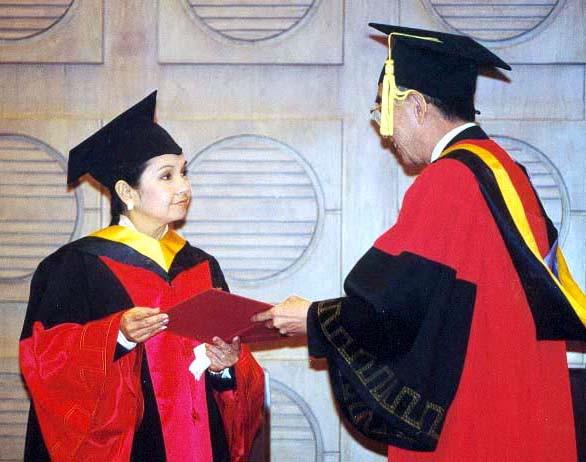
Arroyo receives an honorary PhD degree at Tsinghua University in Beijing on Oct. 30, 2001. (GUO HAIJUN/FOR CHINA DAILY)
Arroyo recalled that only basic needs were provided for at that time, which highlighted the economic progress made just a few years later. "When the great day starting in 1978 - two years after that visit - occurred, I was not surprised that China would indeed have a great speed of development after the Party congress of 1978," she said.
Forty years ago, Chinese leader Deng Xiaoping kicked off the country's reforms with his famous speech, "Emancipate the mind, seek truth from facts, and unite as one in looking to the future", which concluded that year's Central Economic Work Conference.
The speech also set the stage for the Third Plenary Session of the 11th Central Committee of the Communist Party of China, which launched reform and opening-up.
Arroyo said the policy Deng adopted in 1978 had led to great developmental changes in China that were still continuing.
When Arroyo made her first state visit to China in October 2001, after becoming Philippine president that January, she found the changes the reform and opening-up policy had brought to China since 1978 were "breathtaking".
The changes since then had also been "breathtaking", she added.
"One of the greatest accomplishments of China is that it has seen the biggest poverty alleviation in human history, because 700 million Chinese have gradually shaken off poverty since the 1970s up to today," Arroyo said.
One thing that has particularly impressed Arroyo is China's innovation-driven growth, which has pushed the development of high-speed railways, e-commerce, mobile payment and other advances.
The bicycles that she remembered being the preferred mode of transport in China in the 1970s are back, but this time backed by e-commerce innovation, with bike-sharing facilitated by mobile payment becoming popular in many Chinese cities.
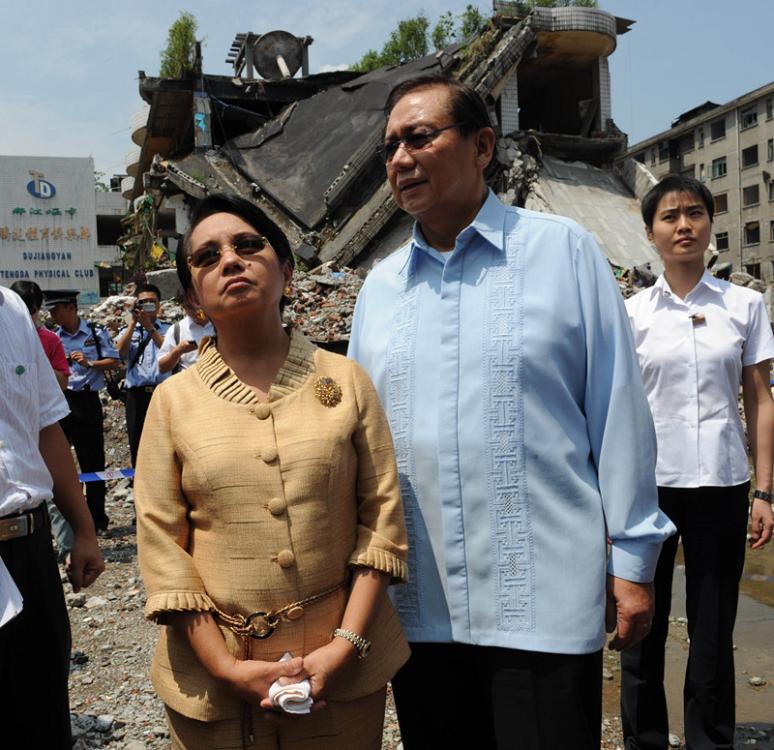
Arroyo visits the area struck by the Wenchuan earthquake in Sichuan Province, on Aug. 7, 2008, with her husband. (YIN GANG/FOR CHINA DAILY)
"I was a contemporary of two Chinese presidents, president Jiang Zemin and president Hu Jintao," Arroyo said. "During that time, it was my policy to develop good relations with China, especially with regard to business and economic cooperation.
"These are also part of what I came to realize from my old days in the (Association for Philippines-China Understanding) and because of the great opportunities from our neighbor, China, becoming such an important economic powerhouse."
China's GDP grew by an average of around 9.5 percent a year in comparable prices from 1978 to 2017, and the country's foreign trade has grown by 14.5 percent a year in U.S. dollars in the same period.
Arroyo said one thing that has enabled China to achieve such rapid growth is the country's strong, long-term national vision, along with its strong national will to carry out that vision.
Over the past 40 years, China has continued to remove institutional barriers to development as part of its overall reform and opening-up policy, from the rural household contract responsibility system to urban economic system reform, from the establishment of the Shenzhen Special Economic Zone to accession to the World Trade Organization, from opening the coastal and border areas to developing the western inland region, and from pilot free trade zones to the Belt and Road Initiative.
Analysts have said reform and opening-up has changed the global economic landscape and value chain, and that may lead to an unfolding historic trajectory as China vows to further open up its economy.
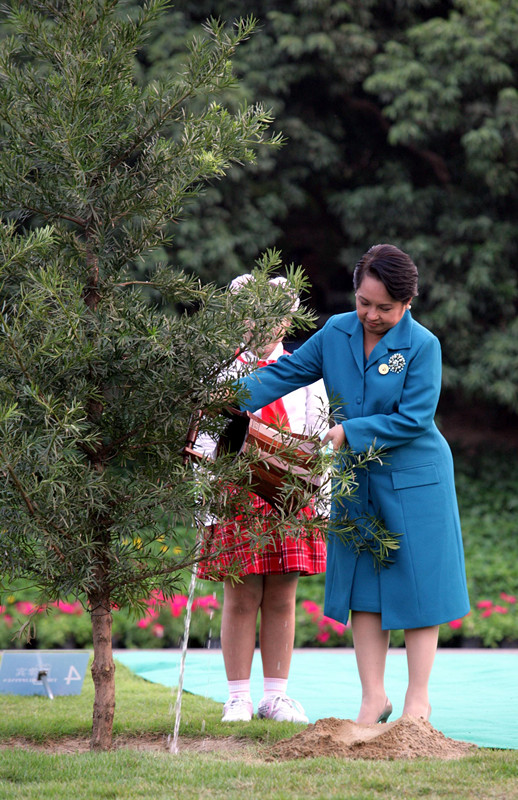
Arroyo plants a tree during the commemorative summit marking 15 years of China-ASEAN ties in Nanning, capital of the Guangxi Zhuang autonomous region, on Oct. 30, (2006. WU ZHIYI/CHINA DAILY)
The 19th CPC National Congress set out a clear and strategic plan on deepening reform on all fronts and opening up wider to the world in the new era. It said the central task will be supply-side structural reform, reflecting China's determination to give the market the decisive role in resources allocation. At the same time, China will open its door wider to the world and increase alignment of domestic practices with international economic and trade rules.
In April, President Xi Jinping pledged China will embrace further reform and opening-up when addressing the opening of the Boao Forum for Asia in Hainan province.
Xi said in his speech that history has shown opening-up was key to China's economic growth over the past 40 years, and, in the same vein, high-quality development of China's economy in the future can only be achieved with greater openness.
"China's door of opening-up will not be closed and will only open even wider," Xi said. "It is a strategic decision made by China based on its need for development as well as a concrete action taken by China to move economic globalization forward in a way that benefits people across the world."
Xi announced an array of measures at the forum to continue opening the country's economy, including broadening access to the Chinese market, enforcing strong protection of intellectual property rights, lowering tariffs on vehicle imports, importing more products that are competitive and needed by the Chinese people, and holding the first China International Import Expo in Shanghai in November.
"We are very impressed and encouraged by the informative speech made by President Xi Jinping, about the need for further reform and opening-up," said Arroyo, who became a board member of the Boao Forum for Asia at its annual conference this year.
Arroyo said the China-proposed Belt and Road Initiative, which encourages two-way trade and mutual investment between all countries and aims to build an open world economy, is an important platform for China to develop cooperation with other countries, including the Philippines.
"I would describe the importance of the initiative by using the language of computers - the software and the hardware," said Arroyo, who is also the permanent honorary chairperson of the Philippines Silk Road International Chamber of Commerce.
"The software of the relations of China with other countries would be the trade and investment agreements, like the free trade agreement between the Association of Southeast Asian Nations and China, because those agreements constitute the framework for trade and investment to thrive, but you also need hardware - the modern infrastructure - that is where the Belt and Road comes in."
She said the Philippines is discussing a series of cooperative projects with China under the Belt and Road Initiative, including some railway projects. Some are coming to close a deal while others are still preparing the paper work, she said.
Arroyo said she was impressed by Xi's proposal to build a community of shared future for mankind, saying the Belt and Road Initiative serves as an important platform to achieve this end.
The bilateral relationship between China and the Philippines has witnessed ups and downs in the past 40 years, but Arroyo said she is optimistic about the future.
"If you look at the long term, a succession of presidents in the Philippines will carry on the same policy," she said.
Another reason for her optimism is the large and important Philippine-Chinese community, she added, which has been in her country for many years and has been important to the bilateral relationship.
Arroyo called for people-to-people exchanges, saying they were key to the countries' relations.
"Because at the end of the day, government is the body of a country, but people are the heart of a country," she said. "So people-to-people exchanges are like what I was doing for the Association for Philippines-China Understanding. I found that was the natural way to develop ties between our two countries and two peoples."
Arroyo also called for ASEAN countries to treat China as a "collaborator, donor and market".
"When China was beginning to develop in 1978, many were somewhat fearful that China would become a rival," she said. "But in the past years, we did not predict that China was going to be in a class all its own. Now we see China is not a rival, it is a collaborator, a market and a donor."
The rise of China had been healthy for the Philippines and ASEAN, she added.










